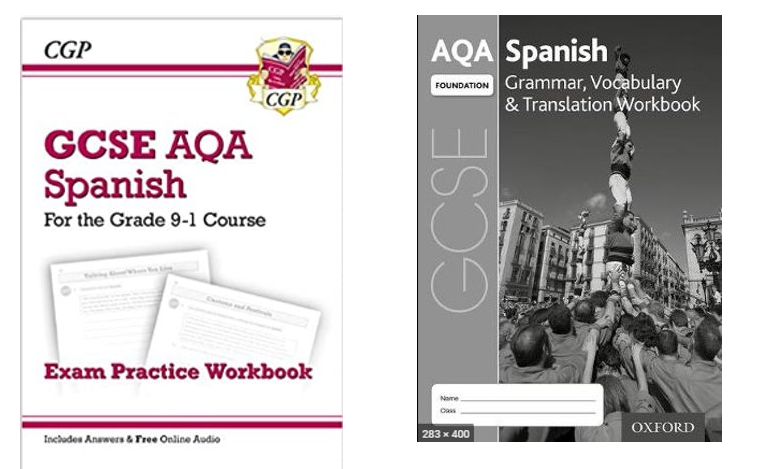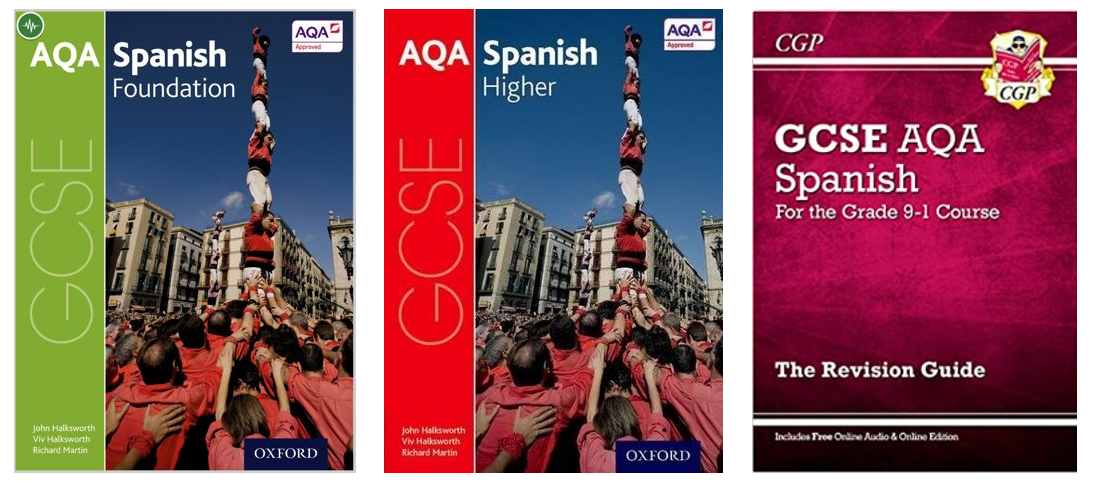Subject Intent
Why study a language at Derby Cathedral School?
"If you talk to a man in a language he understands, that goes to his head. If you talk to him in his own language, that goes to his heart" (Nelson Mandela). Language learning at Derby Cathedral school is a life-long journey, which encourages our students to be open-minded when discovering other societies, religions and cultures and to truly appreciate and embrace multiculturalism in our school, our city of Derby and across the world. Our aim is to stimulate curiosity and deepen understanding of the world we live in through our language learning. Studying languages at DCS is an inclusive educational experience designed. Our students are provided with the building blocks for future language learning and develop cultural awareness to equip them with the skills, confidence and ambition to study, work and live abroad. Being able to communicate and relate to others is the first big step towards global citizenship.
The MFL department is a dynamic team of experienced and enthusiastic linguists who inspire, challenge, and support and fully prepare the next generation of linguists at DCS to become culturally and spiritually aware global citizens, with a love and appreciation of foreign languages and culture. Our own personal passion for our subject(s) and experiences are shared to create an authentic and effortful educational journey, which raises aspiration within every one of our students to be the best they can be.
As a student studying MFL at Derby Cathedral School…
- I can to create links between my language learning and other areas of the curriculum and I can recognise these links, including using my numeracy and literacy skills, amongst a variety of cross-curricular learning, extra-curricular opportunities and trips abroad.
- Through fostering the very highest of expectations, the MFL department offers me a skills-based, broad and engaging curriculum, which offers personalised pathways to develop curiosity, encourage integrity through self-reflection and promote tenacity to ensure I make the best progress possible.
- I learn in a welcoming, inclusive and exciting environment where I am expected to respect others, collaborate with staff and peers and understand that it is OK to make mistakes. The MFL lessons encourage humility and fellowship.
- Communication skills are key and help me to build confidence to be able to express and develop my thoughts and ideas spontaneously and fluently, as well as listen to and respect those of others through the Christian values.
What does my learning journey look like?
Our Spanish learning journey is cumulative and progressive in content, language and delivery for our students at DCS. The structure of our Spanish curriculum planning and delivery will nurture knowledge growth and confidence across the key stages including regular opportunities for retrieval of learning, logical spacing of content to encourage processing, questioning and stimulate curiosity and interweaving of knowledge learned to achieve truly effective and life-long language learning.
KS3 (Year 7-9)
Across Year 7-9 students are able to develop their linguistic and grammatical foundations learned at KS2 and continue to progress across the four key attainment targets of listening, speaking, reading and writing. Students are encouraged to make links between these areas and discover patterns in grammar and vocabulary to help develop their understanding of how languages work. A range of engaging and varied teaching activities build in repeated practice and regular retrieval of learning to ensure students retain and revisit knowledge. Differentiated and accessible teaching and learning is delivered to cater to every pupil need and each assessment will be differentiated carefully and used to inform future learning, encouraging students to become reflective learners.
Our KS3 Spanish curriculum is supported by the Oxford University Press ‘Claro’ 3-year course which offers students an exciting, engaging and authentic programme of study helping to immerse them in Hispanic culture. This course helps to build the grammar knowledge and learning skills, including literary texts, to best prepare our students to step up to KS4 with confidence.
KS4 (Year 10-11)
Students will continue on their learning journey building on the foundations of core grammar and vocabulary outlined in the programmes of study for Key Stages 2 and 3 Spanish and increasing the level of linguistic and cognitive demand. Through studying a GCSE in Spanish students will be able to further develop their ability and ambition to communicate with native speakers in speech and writing. The study of Spanish at GCSE will also broaden our students’ horizons and encourage them to step beyond familiar cultural boundaries and develop new ways of seeing the world. Their 2-year GCSE learning journey in Spanish will allow them to develop their ability to communicate confidently and coherently and with increasing accuracy. Every student at DCS will acquire new knowledge, skills and ways of thinking through the ability to understand and respond to a rich range of authentic spoken and written material, adapted and abridged, as appropriate, including literary texts. Our ambition is to help our students develop language-learning skills both for immediate success and to prepare them for further language study and use at school, higher education or in employment.
MFL Curriculum Plans
Staffing
| Mrs K McLennan | Head of MFL |
| Ms B Nicholson | Spanish Teacher/ Head of Years 10 |
| Ms K Hollins | Spanish Teacher |
| Ms E Andres | Spanish Teacher |
Homework
The MFL department set regular and purposeful homework tasks in line with our school policy. We want our students to develop independence and tenacity, as this is important in raising student achievement and preparing them to be life-long learners.
At DCS we recognise that learning a language is a journey and a life skill and to achieve proficiency in any foreign language, we encourage our students to immerse themselves in the language at every given opportunity both inside and outside of the MFL classroom. Our students are encouraged to use the latest technology to enhance their learning, for example accessing age-appropriate, Hispanic documentaries, films and series via online streaming services, practising and recalling previously learned language and new vocabulary via language-learning applications and engaging in interactive websites at home. Here are some websites and applications we currently use in lessons and recommend for at home language-learning:
Homework in the MFL department is set weekly at Key Stage 3 for approximately 20-30 minutes, is varied in nature and differentiated to cater to the needs and abilities of all of our pupils to ensure every student makes outstanding progress in all of the key skill areas, including:
- Listening and understanding
- Speaking
- Reading and understanding
- Writing
- Translation into English
- Translation into Spanish
- Cultural (based on society and culture in the Spanish-speaking world)
- Independent research projects
In addition, with the new linear-style GCSE and A-Level examinations, it is more important than ever that ours students complete regular, generative homework tasks to address the forgetting curve and knowledge gaps. For this reason, the MFL department use Knowledge Organisers to help students organise, prioritise and review their learning.
Assessment
Key Stage 3
Our KS3 and KS4 MFL curriculum is assessed at regular intervals throughout the year through formative assessment in class, at home and through end of topic and year summative assessment. We monitor and assess every student’s progress through the following summative assessments across the academic year:
- Vocabulary Challenges (1 per half term/ topic)
- Grammar Challenges (1 per half term/ topic)
- End of topic formal assessment (listening, speaking, reading, writing, and/or translation)
GCSE Assessment
The syllabus content is examined across four skills: Listening, Reading, Speaking and Writing. The GCSE has a Foundation Tier (grades 1-5) and a Higher Tier (grades 4-9). Students must take all four question papers at the same tier, in the summer exam series at the end of Year 11. There is no controlled assessment element.
- Listening (25%) – This test is pre-recorded using native speakers and contains materials which would be heard by a visitor to the foreign country. There is a range of question types. The stimulus material is in the target language with questions and answers both in English as well as the target language, depending on both the tier and the section of the paper.
- Reading (25%) - This test contains material which would be read by a visitor to the foreign country. The range of question types is the same as for Listening with the addition of a short translation from the target language into English.
- Speaking (25%) – The oral test consists of a role-play, a photo card and general conversation. The tests are conducted and recorded by the candidate’s teacher and marked by the examination board.
- Writing (25%) – The written test comprises a variety of tasks ranging from a shorter piece of writing/ photo description, a translation into the target language to a longer structured written task, depending on the tier. The test is carried out in one final exam during the exam period.
Study skills & revision
Languages are a highly regarded and notoriously difficult subject but they offer our students a wealth of cultural knowledge, transferable skills as well as increasing future opportunities. To truly excel in languages and be the best you can be, you have to develop the key skills and the right mind-set. As a challenging subject, our linguists at DCS are encouraged to:
- Be organised – lessons are fast and packed with content. You need to be able to pick up your learning from your organised notes and Knowledge Organisers outside of the classroom.
- Positive attitude – languages are challenging but you will soon find it is a bit like interval training; there are some steep learning curves but you will see progress after them. Keeping positive will ensure you get to the end in one piece. Be tenacious!
- Independent study – you must regularly review your work and test your knowledge if oyu are to improve your language. There are so many different skills involved in mastering a foreign language that just doing the work in class is not enough. Not developing your language learning outside of the classroom will show and hinder your progress.
- Reflect on your progress – analyse past papers/assessments and the feedback from your teachers to identify what went well, even better if and your next steps/areas to work on. Complete proactive tasks to help you make progress.
Resources
Websites and online applications:
Key Stage 3 (Year 7-9)

Key Stage 4 (Year 10-11)

.jpg)